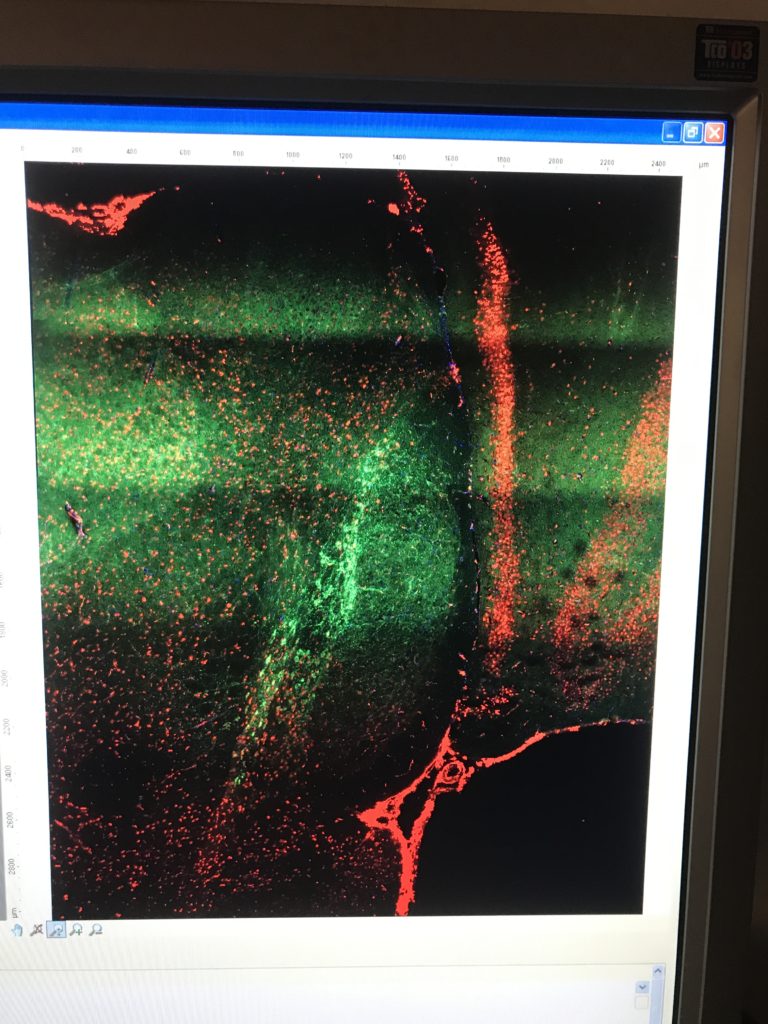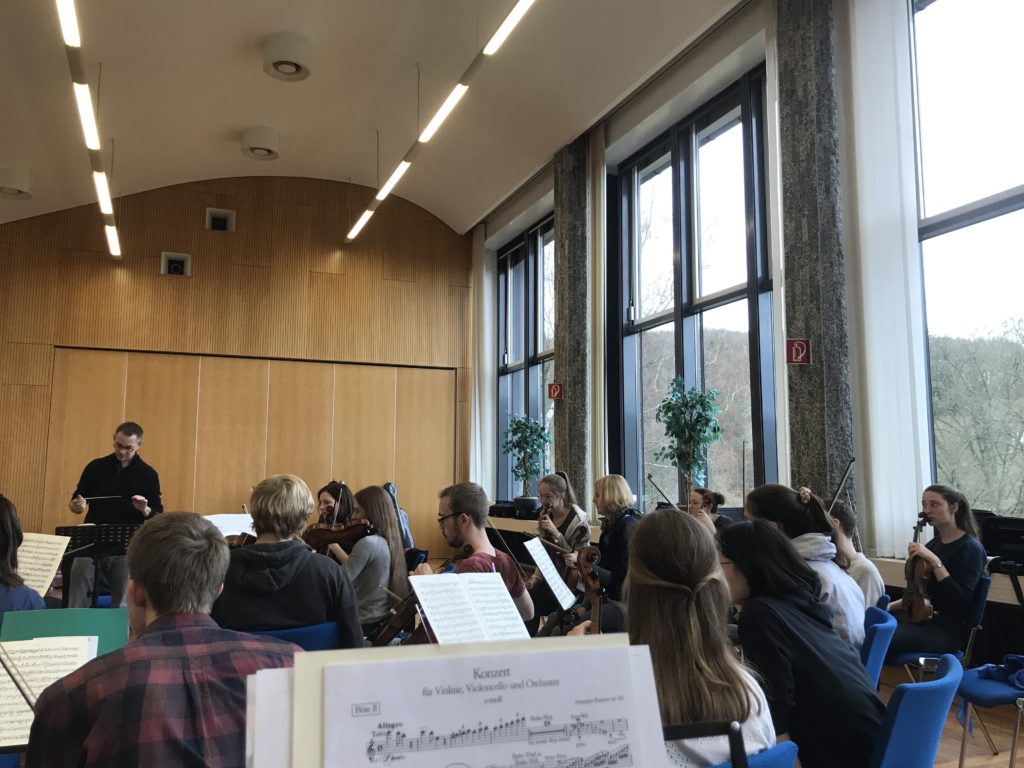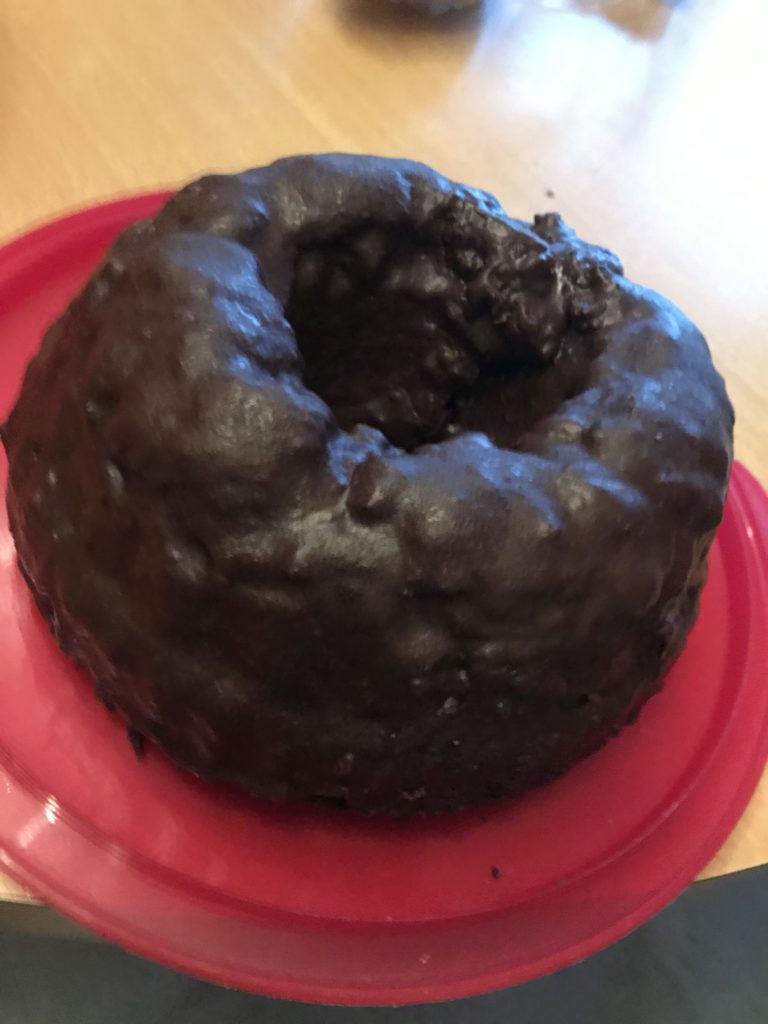While catching up with a friend over Facetime a few weeks ago, my friend Liz said something that really resonated with me: Excepting the not-always-minor issue of money, you can visit Europe or different places virtually any time you want to, but studying abroad is one of the only opportunities you get to actually LIVE somewhere abroad – not just visit. Awkward and uncomfortable as I sometimes feel here, right now I live and belong in Bonn in a way that will never (necessarily) be true again. Basically no one questions why I am here or whether I belong. They might ask why I chose Germany, but whatever my answer is, I am and belong here now. I have a place to live, I walk down streets that are, or at least feel like, my own, I have housemates, a workplace. I shop at grocery stores for normal groceries. I (at least mostly now) don’t rush to try every restaurant or cafe, because I have time here – I have many months to discover many, if not every, cafe. That may all sound rather mundane – taking the public transport to work, shopping for groceries – but in many ways it isn’t. A year from now, none of that will be true anymore. I can come back to Bonn to visit, but nothing will be quite the same. I will be a visitor, a tourist, a transient. I can walk down the streets, but they will no longer be “mine.” I can go to the lab, but I will no longer work there. I can stay in the same WG even, but it won’t belong to me in the way that it does now. Here and now is a special opportunity, and I am trying to remember that and appreciate it while I can.
In the spirit of that idea – enjoying and embracing life in Bonn – I thought I would tell you all a bit more about my every day lab work, and a bit more about one event that, perhaps ironically, took me outside of Bonn – but for a very good, because-I-am-living-in-Bonn-right-now reason!
I work in the Life and Brain building at the Universitäts Klinikum Bonn in Venusberg, and specifically I work in the Neural Regeneration group (headed by Dr. Neumann) of the Institute of Reconstructive Neurobiology. One of the central goals of this group is to understand the role of microglia in neurodegeneration. For those of you that do not work in research or science-related fields, bear with me here, but I will try to make this as clear as I can! (You can also skip to the next, non-science-related section if you’d prefer, of course!) Microglia are immune defense cells in the central nervous system. Although microglia serve important functions in maintaining a healthy nervous system, when they become dysregulated or over-activated they can contribute to nervous system damage by releasing harmful substances, such as inflammatory cytokines and reactive oxygen species. A group of proteins called Siglecs (sialic acid-binding immunoglobulin superfamily lectins), some of which are found on the cell membrane of microglia, are known to shift microglia from disease-causing to normal activity. Studies (in our lab and others) have shown that when a compound called polysialic acid binds to one particular Siglec, Siglec-11, microglia cause less inflammation and other harm, leading to reduced neurodegeneration, and in some cases, even neuroprotective effects. Specifically, studies have shown that in a mouse model of macular degeneration, polysialic acid acts neuroprotectively. Based on these results, the lab hypothesizes that polysialic acid may also be neuroprotective and/or neuroregenerative in a mouse model of Parkinson’s disease. This hypothesis is the basis for my project.
Essentially, working with a fantastic mentor and PhD student named Huan, I am applying polysialic acid to a Parkinson’s disease mouse model, and then making observations in comparison to control groups to determine whether polysialic acid does, indeed, appear to be neuroprotective. Specifically, I have learned how to use a machine called a Cryostat to make extremely-thin (20 μm) brain slices and then put them on glass slides (this part is kind of cool – because the slices are very cold, and the glass slides are at normal room temperature, when the slice makes contact with the slide it essentially just melts onto it – no glue or other mounting materials are necessary). I have also learned how to do immunostaining, and then take pictures of the stained slices with an Apotome microscope. After identifying particular brain regions of interest (for Parkinson’s disease, the main one is the substantia nigra), I stain these slices with different markers to tag all cells, neurons, and dopaminergic (dopamine-producing) neurons, respectively. Then I take lots of pictures with the Apotome, identify slices/pictures that match in depth to compare across the different groups, and analyze the data! All of that probably sounds rather uncomplicated, and none of it is particularly difficult, but it takes time. Simply learning how to use the various machines, and then become proficient at using them, takes time, and trying to be careful to produce good data often makes things take longer. But, as Huan often reminds me, better to take the time to do things well from the beginning, because every step afterwards counts on the ones before, and we want to end up with good data in the end! I’m slowly increasing my skill level at these various tasks, and hopefully, I will soon have a sizable amount of data to begin some real analyses – stay tuned!
And now, with the science lesson over, I would like to tell you about a less intellectually-rigorous, but very fun event I attended this past weekend – an external rehearsal weekend with my orchestra! (And actually, maybe I take that back – spending a weekend with people I don’t know as well and speaking almost entirely German was, in fact, rather intellectually challenging!) While our orchestra meets regularly – once each week – it was nice to have the opportunity for some more intensive rehearsals. And, perhaps more importantly, it was a great opportunity to get to know the other orchestra members better! In this regard, it felt a lot to me like my band/choir tours at Luther! Not everyone was there, as the weekend wasn’t mandatory, but many were.
The weekend took place in Bad Münstereifel, a historical spa town in – more or less – the middle of nowhere, about an hour by car, two by train, from Bonn. I managed to hitch a ride by car (rather a rarity as not many people I know here have one!), squished in with a violin player on one side, and a tuba and cello (instruments, not people) on the other. In moments like these I am ever so grateful that I play a small instrument! We stayed in a youth hostel, and I was in a room with five other girls, all violin-players.
The other flute was not able to come, so I was on my own for the rehearsals! I still sometimes struggle to keep up occasionally (“vier vor ein hundert drei-und-zwanzig, okay four before one hundred thiry-two – wait! one hundred twenty three”), but I have definitely improved. I really enjoy the pieces we are playing (Prokofiev first and second suits, Beethoven’s Prometheus, a Brahms piece), so rehearsals are – at least for the most part – a genuine pleasure.
To get to and from the rehearsal space from the youth hostel, you had to either finagle your way into someone’s car and hitch a ride, or walk – and by walk I mean hike, and by hike I mean wade through piles of leaves several inches deep up a rather steep mountain. Joking aside, the forests we walked through were quite beautiful, and the rather arduous walk was a nice time to chat and make a new friend (or at the very least, pant in harmony).
During the afternoon, we enjoyed a nice typical German break of Kaffee and Kuchen. They had told us about this beforehand, so I had made – or rather attempted to make – my family’s typical chocolate bundt “lake” cake (we often made this cake at our cabin, hence the name). However, this cake generally involves both a U.S. cake mix and a box of chocolate pudding mix, neither of which I had/could easily find in Germany, so I sort of combined our recipe with several I found online to make my cake. Thus, it wasn’t quite like my family’s lake cake, but it was close. (The cake also didn’t look quite as elegant and smooth as usual, but the chocolate glaze helped with that – it still tasted quite good!) Besides my cake, others had brought cakes, banana bread, cookies, Spekulatius, Magenbrot, chocolate-covered gingerbread hearts, and other sweet German Christmas treats. My cake was well quite well received – in fact, it was the only item on the table to be completely gone by the end of the rehearsal (I must say, I was rather proud of this fact)! By far my favorite compliment with regard to the cake, though, was my orchestra director’s (in English, which he likes to try with me now and then): “You made this cake? Oh, so good! You can marry any boy!”
One of the other highlights of the weekend was the Bunter Abend, or variety show on Saturday night. Although we didn’t end up actually performing it, I had some fun with my roommates in the brainstorming potential ideas for variety show acts. Our top choice ended up being a round – in English, actually, although I didn’t know it – that one of the girls taught the rest of us. Catchy and fun, the text went, “To stop the train, in case of emergency, just pull the chain, (pull the chain,) penalty for improper use, five pounds.” The way it works, when you have a lot of people all doing it in a row you get this cool repeat at the end of “five pounds, five pounds, five pounds…” Eventually we added motions, too – all in all, a lovely afternoon of fun!
The Bunter Abend itself turned out quite fun, too! We had some popular songs played by the viola section, a nice piece played on the tuba with some accompaniment from a rubber duck, a funny duet version of one of our Prokofiev pieces with a bassoon (played by one of the clarinet players) and an interesting accordion/bagpipe-type instrument, and more. Interspersed through these individual acts, we also had group activities like lining up in order of age, height, and alphabetical name order, respectively, which were fun ways to meet a few new people! The evening concluded with further shenanigans, involving a game where people tried to eat chocolate bars with a fork and knife while wearing thick winter gloves, and a speed-eating competition with Schokoküsse – basically large, chocolate-covered marshmallows.
All in all, it was a lovely weekend, and I now know quite a few more of my colleagues in the orchestra! As the year proceeds, I hope to continue savoring these special yet everyday moments in Bonn. I already know this year is going to fly by far too fast, and I want to enjoy and embrace this year in Germany to the very best of my ability!



It seems agood mix of intellect and fun. Great work on the cake!
It makes me happy for you to read about all your activities.
Love, love love your posts. This one especially. So happy you are enjoying your time there, and learning and making friends along the way. have a great Christmas.